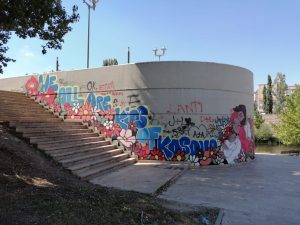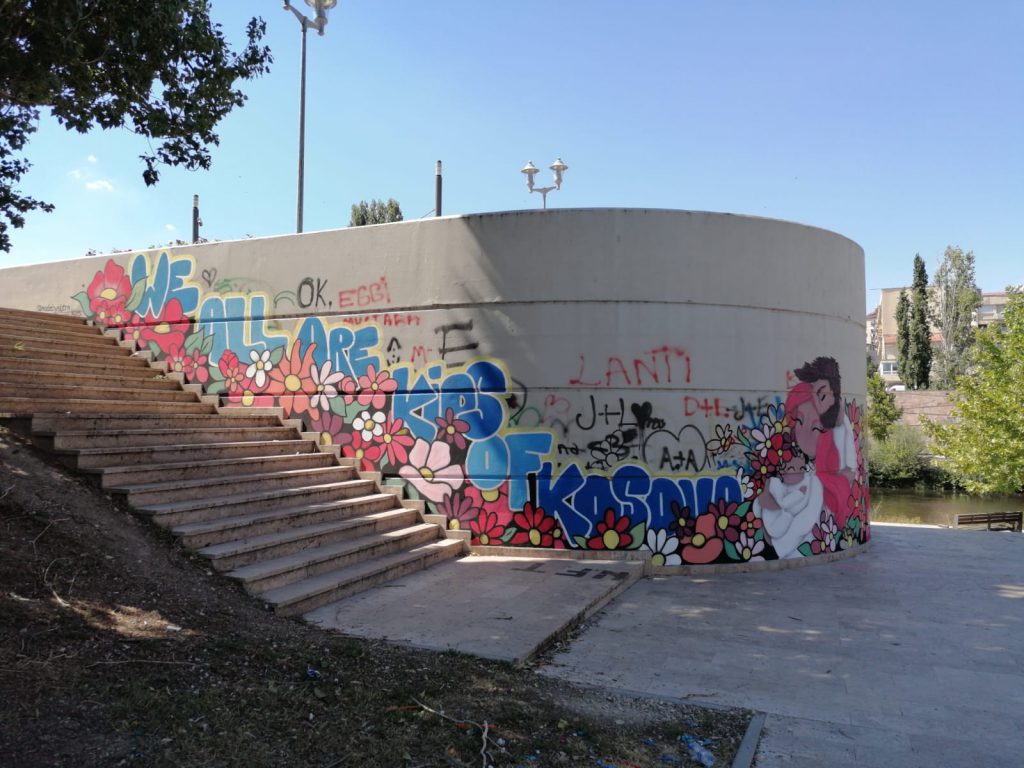How are Kosovar youth tearing down barriers between multiethnic communities?
The stage of youth is a pivotal period in an individual’s journey of self-discovery, where they shape their sense of self as an individual and as a member of a broader community. In Kosovo, however, this development is often hindered by the pervasive presence of hate speech and prejudices directed towards various groups, including ethnic and minority groups; Serbian, Roma, Ashkali, and Egyptian communities. The aftermath of Kosovo’s War in 90s from Serbia created this societal context, the country was left deeply divided along ethnic lines. As a result, members of different communities in Kosovo often lead highly segregated lives, with little interaction or integration between them. This isolation reinforces the creation of a construct of “the other,” which is defined by the prejudices and stereotypes passed down through family, media, and educational systems. This process perpetuates an antagonistic distinction between two seemingly monolithic identities: the good and righteous” “we,” versus the evil and unjust “they.”
The impact of these dynamics on the development of individual and collective identities among youth in Kosovo is concerning. The creation of the above-mentioned rigid, dichotomous identities can lead to the stigmatization and exclusion of entire communities, hindering the development of empathy and understanding across ethnic and cultural lines. In order to promote a more inclusive and cohesive society, it is essential to address the root causes of these issues, including the harmful effects of hate speech, prejudice, and rigid identities, and to promote greater interaction and understanding between different communities in Kosovo.
The challenges facing youth in Kosovo in terms of developing their identities and the skills necessary to succeed in the modern workforce are interconnected. Since the 1999 war, the education sector in Kosovo has been a major concern. The struggle of young people to access quality education has resulted in potential barriers to their entry and advancement in the workforce, thus limiting their opportunities and potential for success.
Despite efforts to improve the quality and quantity of education provided to young people, many employers report that graduates need to prepare for the demands of the modern workforce. The new Framework Curriculum aims to address this gap by shifting the focus from knowledge-based education to a more skills-based approach. However, the implementation of this approach will take time, and it will require a significant shift in teaching methods and attitudes towards education. Only then can Kosovo’s education system meet the demands of the labor market and support the country’s economic growth and development.
In Kosovo, civil society organizations are actively addressing the challenges faced by young people. SIT, a non-governmental organization, is committed to creating a safe and inclusive society where individuals can achieve their potential regardless of social identities. Through non-formal education, SIT works to promote peacebuilding, prevent radicalization, and enhance conflict-management skills among youth. For instance, SIT collaborated with the Kosovo Ministry of Justice and correctional services through the YMI+ program to prevent radicalization and facilitate resocialization of juveniles in correctional institutions. Additionally, SIT’s “Break the Ice” and “Break the Ice 2.0” projects fostered social cohesion and inter-ethnic cooperation among youth in Kosovo and Serbia. SIT’s “Enhancing Conflict-Management Skills of Youth” project aimed to strengthen conflict resilience and promote language rights for youth in Kosovo’s diverse communities. The project involved language courses, residential camps, and workshops on topics such as violence, diversity, inter-ethnic dialogue, tolerance, human rights, gender equality, and inclusion. Overall, SIT’s initiatives are crucial in promoting a peaceful and inclusive society in Kosovo.
The lack of perspective is often cited as a contributing factor to the conflicts and segregation that have been present in Kosovo. MasterPeace and SIT are currently collaborating to organize dialogue between ethnic communities in Kosovo. The organizations are working together to encourage critical and creative thinking through programs aimed at creating a more sustainable future for young people in Kosovo. The collaboration aims to eliminate segregation and promote a future that is more inclusive and equitable.
MasterPeace & SIT believe that diversity is an asset and that it should be celebrated. Their collaborative programs are designed to encourage critical and creative thinking and create a more sustainable future for young people in the country. By fostering dialogue, the organizations hope to eliminate segregation and promote an inclusive and equitable future that celebrates diversity.


